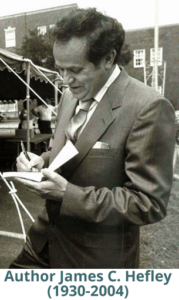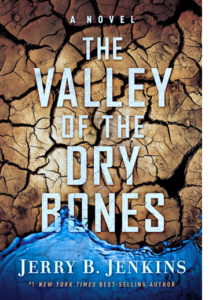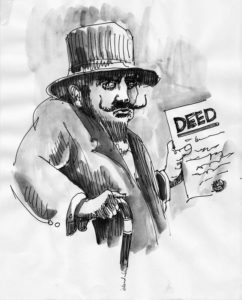Jerry B. Jenkins's Blog, page 22
June 7, 2016
How To Write a Winner Every Time
 I recently traded correspondence with a young author who complained that he had been unable to come up with anything to write about for weeks.
I recently traded correspondence with a young author who complained that he had been unable to come up with anything to write about for weeks.
He said, “I’ve been nothing but dry. I don’t know if it’s because of personal problems or what, but something has been hindering me, and I really don’t know what to do.”
Have you been there? You know you’re a writer. You’ve been told you have a way with words. It’s just that none seem to be coming, and you wonder if they ever will again.
Could It Be That Dreaded Scourge?
Dare I put it in print in the light of day? Am I, the one on record claiming it’s a myth no other profession allows itself, open to the possibility that my young friend could be suffering from…
Writer’s Block?
Hardly.
Frankly, my fear is that this young scribe has fallen into the trap of believing that we writers are to write for the sake of writing.
Unfortunately, when we do that, it shows. My counsel to him was to take a step back and determine what those personal problems were meant to teach.
I have a feeling he might come out the other side of his personal valley bursting with something to say.
Write From Your Gut
Don’t write because you’re a writer.
Write because you have something to say.
Write from an overflow of passion.
Write because you can’t keep it to yourself.
About vs. Purpose
When you write from your passions, your writing will never again simply be about something.
It will always be for the purpose of something. You’ll write with your reader first in your mind, determined to make a difference in his life.
That’s the way to write a winner every time.
What passion is fueling your writing? I’d love to know. Tell me in the Comments.
The post How To Write a Winner Every Time appeared first on Jerry Jenkins | Write Your Book.
May 31, 2016
Finding Takeaway Value in Every Book You Write: Author Arc Is as Important as Character Arc
Though my first book released in 1974, and my 189th (131st novel) releases today, the thrill has never faded.
Sure, you never forget your firsts:
First New York Times bestseller (Out of the Blue, 1989)
All-time bestseller (Left Behind, 1995)
First to become a movie (Though None Go with Me, 2000)
First Christy Award winner (Soon, 2004)
Personal favorite (Riven, 2008)
But despite the volume of my output, somehow opening that package of new books from the publisher has never become routine. That may stem from how privileged I feel to make my living doing what I love.
 Also, advice from one of my writing idols put me on the right course early. When I was a 15-year-old high schooler, I finagled an introduction to journalist and author James C. Hefley, who generously counseled me when he learned I coveted a career like his.
Also, advice from one of my writing idols put me on the right course early. When I was a 15-year-old high schooler, I finagled an introduction to journalist and author James C. Hefley, who generously counseled me when he learned I coveted a career like his.
He let me peruse his writing office and bulging library, telling me, “Writers are readers, good writers are good readers.”
He also advised me to make sure I treated every assignment as a learning opportunity. “That way each article and book can be better than the last.”
The more books I’ve written, the tougher that has become. But no one, certainly not Hefley, said it would be easy. That’s what makes it a fun challenge.
And I try to keep track of what I learn from each book, because it often surprises writing students that even an old dog like me can learn new tricks.
The novel that debuts today is set ten years into the future in California, where a band of 16 holdouts remains, despite that the U.S. Government has condemned the state after an unrelenting 17-year drought. Think The Walking Dead meets Left Behind.
 So what did I learn from writing it?
So what did I learn from writing it?
To emulate the new trend of episodic TV series and offer satisfying setups and payoffs while maintaining the book-length story structure.
To maintain a single third-person limited point-of-view perspective character for the entire novel. My main character, Zeke Thorppe, serves as my camera for every scene throughout. (And his last name is an anagram. Enjoy the puzzle.)
I covered 10 years in a prologue of just 7 pages that began with a tragedy and ended with my my hero and his cohorts in condemned California, living underground.
The holdouts had answered a call to missions from their pastor—not to go, but to stay when 99 percent of the population was displaced by the condemnation of the state.
My goal, my challenge, was to do justice to all 16 characters—primarily my lead, of course—but the rest also needed their time on stage, and in more than a perfunctory way.
I see too many manuscripts in which it’s clear the author has worked to keep things even among the cast of characters. There’s no need for that. It must come naturally or not at all.
If scenes don’t arise for certain role players, they may be unnecessary. Otherwise, don’t feel obligated to become a stage director.
Just because I painted a dystopian setting, I was determined not to allow the novel to become so action-heavy that it couldn’t be character-driven.
With the holdouts living in an underground compound in small family groups, their relationships made for natural drama within the overall story.
Though I am a veteran in the inspirational market, and this is aimed primarily at that audience, I experimented with a more experiential practice of faith than even I am familiar with.
My main character comes to believe he is hearing directly, audibly from God, and eventually this is proved true.
My major learning curve came in creating a certain dialect without slowing the reader with too many peculiarities of punctuation.
Naturally, the marketplace will decide whether I have succeeded in all this, and then I will have really learned something.
What are you doing to learn something with your newest writing project? Tell me below.
The post Finding Takeaway Value in Every Book You Write: Author Arc Is as Important as Character Arc appeared first on Jerry Jenkins | Write Your Book.
May 12, 2016
How Important Is Talent to You as a Writer?
 Picture the field of writing as a professional sports team. Almost every team has one standout, superstar talent.
Picture the field of writing as a professional sports team. Almost every team has one standout, superstar talent.
The rest of the team is aware that he is the best, sometimes lightyears ahead of the rest in natural ability, gifted with all the tools to effortlessly excel and eventually land in the Hall of Fame.
They watch out of the corners of their eyes when he practices. They swap stories about his legendary exploits during games.
The rest of the team is made up of fabulous athletes. Some could be superstar Hall of Famers if they weren’t lazy, didn’t have bad attitudes, or hadn’t suffered injuries.
Others are just good but not great. They are professionals too, after all, and better than any amateur.
Then there are those journeymen who simply love the game so much that they will not be denied. They learn its history, its intricacies, its every rule and strategy. And they have given themselves to fulfilling every last ounce of their potential, regardless their limitations.
They are also the ones who, when the fates allow, rise to the occasion and show streaks of brilliance, performing like those superstars.These are the ones who so revere the game that they become coaches and scouts and analysts when their playing days are over.
Every once in a great while, a gifted superstar gives himself to the game as selflessly as one of these journeymen. He works as hard as one who is not naturally gifted, making himself even that much better. And that’s where legends come from, like Michael Jordan, Serena Williams, and Willie Mays.
It’s the same with writers.
I’d love to be a superstar like Rick Bragg or J.K. Rowling.
I am a journeyman.
Without major work, I’d never have gotten where I am today. Throughout my career I’ve:
Rigorously studied hundreds of books on writing
Hit a lot of singles and doubles before I hit a home-run
Spent thousands of hours at writers conferences, learning when I was not teaching
And only after all this did I find the success I’ve enjoyed for the past three decades or so.
You might bring superstar talent to this game. Or you might be a journeyman like me. Regardless where you start, your work ethic will determine your success.
Who are you as a writer, and what are you willing to invest in your dream?
The post How Important Is Talent to You as a Writer? appeared first on Jerry Jenkins | Write Your Book.
May 3, 2016
The 5 Most Common Mistakes I See in Beginners’ Manuscripts
 It doesn’t sound fair.
It doesn’t sound fair.
It doesn’t seem right.
But here’s a dirty little secret of the writing life you need to hear:
Any veteran editor can tell within two minutes whether they’re going to reject your manuscript.
It takes longer to decide whether they’ll recommend it for purchase, of course, but—sad to say—it can, and often does, go into the reject pile just that fast.
“What?” you say. “Before I’ve had a chance to wow them with my stupendous villain? Before my mind-blowing twist? Before my plot really takes off?”
Sorry.
And I’m not exaggerating.
Why?
Because the competition is so stiff and editors have so many manuscripts to read, you have only nanoseconds to grab them by the throat and hang on.
Every writing mentor you’ve ever read hammers at this ad infinitum: Your editor is your first reader.
Every word counts. You get one chance. You must capture them from the get-go.
Am I saying editors look for reasons to reject your work?
No, no, a thousand times no! They’re looking for the next Harry Potter!
Editors want you to succeed!
Then how can they know so quickly that your book won’t cut it?
In my lifetime in the business I’ve heard dozens of reasons, but let me give you my personal top five from my experience as both an editor and publisher:
Too much throat-clearing
This is what editors call anything that comes before a story or chapter finally, really, begins. It usually consists of a page or two of scene setting and background. Get on with the story. Get your main character introduced, establish and upset some status quo, then plunge him into terrible trouble that reveals the engine of your story. Is it a quest, a journey, a challenge, what?
There’ll be plenty of time to work in all those details that seemed so important in that throat-clearing that would have cost you a sale. For now, your job is to start with a bang.
Too many characters introduced too quickly
I’m usually wary of generalizations or hard and fast rules, but almost any time I see more than three characters within the first few pages, my eyes start to swim. If I feel like I need a program to keep track of the players, I quickly lose interest.
Your reader is trying to comprehend the story, and if you ask him to start cataloguing a cast of characters right away, you risk losing him. Keep things simple at first till the story has taken shape.
Point of view violations
Maintain a single Point of View (POV) for every scene. Violate that cardinal rule and you expose yourself as an amateur right out of the gate. Beginners often defend themselves against this criticism by citing classics by famous authors or citing J.K. Rowling, the exception who proves the rule.
Times change. Readers’ tastes evolve. This is the rule for today, and it’s true of what sells.
Clichés, and not just words and phrases
There are also clichéd situations, like starting your story with the main character waking to an alarm clock; having a character describe herself while looking in a full-length mirror; having future love interests literally bump into each other upon first meeting, etc.
Avoid the cliché of beginning with an evocative, dramatic scene, and surprise, surprise, the main character wakes up and the reader discovers it’s all been a dream. There’s nothing wrong with dreams, but having them come as surprises has been used to death and takes all the air from the balloon of your story.
It’s also a cliché to have your main character feel his heart pound, race, thud, or hammer; and then he gasps, sucks wind, his breath comes short… If you describe the scene properly, your reader should experience all that and you shouldn’t have to say your character did. Put your character into a rough enough situation, and the reader will know what he’s feeling without having to be told, and hopefully he’ll share his distress.
Simply bad writing:
Written-ese
This is what I call that special language we all tend to use when we forget to Just Say It. I recently edited this sentence from a novice: “The firedrop from the pommel of Tambre’s sword shot past the shimmering silver mist of her involuntary dispersal.”
I had to read a few more paragraphs to have a clue to what it even meant. That’s written-ese.
On-the-nose writing
Hollywood screenwriters coined this term for prose that exactly mirrors real life but fails to advance your plot. There’s nothing wrong with the words themselves, except that they could be synopsized to save the reader’s time and patience. A perfect example is replacing all the hi’s and hello’s and how are you’s that precede meaningful dialogue with something like: “After trading pleasantries, Jim asked Fred if he’d heard about what had happened to Tricia. ‘No, what?’”
Passive voice
Avoid state-of-being verbs. Change sentences like “There was a man standing…” to “A man stood…”
Needless words
The most famous rule in the bible of writing hints—The Elements of Style—is “Omit Needless Words,” which follows its own advice. This should be the hallmark of every writer.
Example: The administrative assistant ushered me through the open door into the CEO’s office, and I sat down in a chair across from his big, wood desk.
Edit: The administrative assistant ushered me through the open door into the CEO’s office, and I sat down in a chair across from his big, wood desk.
Obviously, there would be a door. And even more obviously, it would be open. If I sat, I would sit “down,” and naturally it would be in a chair. Because I’m seeing the CEO, a description of his desk would be notable only if it weren’t big or wood.
Result: The administrative assistant ushered me into the CEO’s office, and I sat across from his desk.
Re-examine these 5 common mistakes, and study more self-editing tips here , then share below your tips on how to turn rejections into sales.
The post The 5 Most Common Mistakes I See in Beginners’ Manuscripts appeared first on Jerry Jenkins | Write Your Book.
April 26, 2016
5 Ways to Smash Through and Finally Start Writing
 If you’re like I was at the beginning of my career, you have huge dreams.
If you’re like I was at the beginning of my career, you have huge dreams.
But sadly, the bigger the dream, the greater the frustration when day after day passes without success.
The cause—not starting—looks simple. But the fix—starting (which also looks simple)—has you stymied.
You know you would succeed if you could just get going. Yet all the willpower, resolve, and turning over of new leaves only exasperates you that much more as days pass with nothing done.
Something about simply beginning stops you dead.
So let’s get you to the keyboard.
Procrastination is no excuse—it’s a prerequisite!
People who know my credits (nearly 190 books, 21 New York Times bestsellers, and more than 70 million copies sold) find it hard to believe I’m a procrastinator. But it’s true.
Procrastination must be a prerequisite to professional writing, because it seems more of us suffer from it than not. So don’t use that as an excuse.
Daily Rituals, a fascinating book by Mason Currey, tells how more than 160 novelists, poets, playwrights, painters, and the like do their work. I was stunned to find how many are 1—morning people and 2—procrastinators.
Being a morning person is irrelevant. The key is learning your own body clock and writing when you’re freshest and your mind sharpest. If you’re a night person, write then if you can. Do whatever works best for you.
But the real takeaway value from Daily Rituals is that if you’re a procrastinator, don’t despair. I’m living proof, as are many in Currey’s book, that it’s not a deal breaker. What’s critical is to schedule your procrastination, recognizing that your subconscious is working while you’re stalling, playing, or dawdling—so you can quit losing sleep over it.
Needless to say, at some point the procrastination must end or you remain stuck, reading blog posts like this and wondering if you’ll ever get your slice of the publishing pie.
To actually start doing the work and achieve more than you ever dreamt possible, you need to get cracking.
Here’s How
1—Remind yourself that writer’s block is a myth. No one in any other profession dares claim worker’s block, and if they did, they’d be ridiculed and fired.
2—Carve out your writing time. You won’t find it; you have to create it. What are you willing to give up to achieve your dream?
3—Turn off social media so you’re not tempted to check email, Facebook, Twitter, or The 20 Ugliest Celebrities Ever. No self-control? Try Anti-Social. Download it, install it, use it.
4—Turn off your internal editor while you’re writing. Your first draft is just a hunk of meat to get onto the cutting table so you can start the slicing and dicing tomorrow.
Ignore that irritating voice—your own, of course—telling you you’re no good, you’ve chosen the wrong word, resorted to clichés, and so-and-so is better than you…Today you’re creating. Tomorrow you’ll carve.
5—Stay at it. Regardless the demands on your life, if all you can carve out of your calendar is the time to produce one finished page per day, even if you allow yourself 65 days off for breaks or emergencies, you’ll still write 300 pages by this time next year.
Can you manage that? I know you can.
In the Comments section below, tell me how you’ll make sure you finally get started this week.
The post 5 Ways to Smash Through and Finally Start Writing appeared first on Jerry Jenkins | Write Your Book.
April 20, 2016
What Makes a Great Villain? Your Checklist for Writing a Good Bad Guy
 Nothing makes your hero more heroic than a worthy opponent.
Nothing makes your hero more heroic than a worthy opponent.
Don’t shortchange your villain. Spend every bit as much time crafting him as you do your lead character, if you want your story to work.
(Though I will use male pronouns throughout, this applies equally if your main character is a heroine or your villain is female.)
Too many novelists give plenty of care to every other element of their story, then create what they consider a deliciously evil villain and wonder why the package seems to fall flat.
Often it’s because the bad guy is only that: bad. He’s from Central Casting and might as well be starring in a melodrama, complete with black top hat, cape, and handlebar moustache so we readers can boo and hiss his every entrance.
Every other character is real and nuanced and believable, but the second-most important lead is only a caricature—spoiling the reader’s whole experience.
Motivation: The Secret Sauce for Creating a Compelling Villain
Don’t let the word scare you. Motivation doesn’t have to be some nebulous theatrical concept tossed about by method actors trying to get into character. It simply means your bad guy needs a reason for being the person he has become.
If he isn’t working, it’s because you’ve made him the villain only because he’s a bad person. He does evil things because he’s evil.
That’s too easy. Change your thinking.
Try something revolutionary.
If you just can’t understand truly villainous people, try this: Put yourself in their place.
“Wait!” you say. “I’d rather see myself as the hero, doing the right thing because it’s the right thing, rising to the challenge, saving the day.”
Wouldn’t we all?
Well, don’t knock this till you’ve tried it. You’re writing along, and you’ve come to the place where your villain needs to act in some evil way. Your virtual online writing coach has urged you to be sure he has proper motivation.
What does this mean? He can’t be bad, do bad, cause trouble just because he’s the bad guy, so what’s made him this way? What’s behind it? You have to know before you have him do whatever it is he’s about to do.
Take His Place
“But I’m not a villain!” you say. “I’m no Dr. Moriarty or Dracula or Simon Legree.”
Yes, you are. You have your days. You’ve learned to control yourself, or maybe you’re a person of faith and have found control outside yourself. But you know your true nature, your old nature.
We novelists need to become our characters, from young to old, male to female, blue-collar worker to executive, and illiterate to educated. That’s part of the fun of it.
Now take that further. When a friend takes credit for something you accomplished, what’s your first private thought? You get over it, I know. You probably say nothing and let it pass for the sake of the relationship, and that’s great. But dwell on that initial visceral reaction a moment.
Someone you know well and love and trust lies to you, and there’s no question about it. You’re offended, hurt—crushed really. In fact, you’re infuriated. You bite your tongue because you’re a mature adult.
Maybe when you cool down you’ll rationally confront the lie and get to the bottom of it. But for now, entertain that immediate first reaction. Where was your heart and mind then?
I’m not telling you to become mean, rotten, and nasty when we’re all supposed to have grown out of that kind of thing by now. But I am telling you to tap into your dark side long enough to know what makes a good villain tick.
Villains are real people to whom terrible things have happened.
Maybe in childhood, maybe in adolescence, maybe later. At some point, rather than learning and growing, their maturation process stunted and stalled.
Roots of bitterness and anger sprang up in them. On the surface they may have many, if not most, of the same attractive qualities of your hero. But just beneath the surface fester the qualities you can access in yourself if you allow yourself to.
While this may explain the reasons for your villain’s actions, it doesn’t excuse or forgive them. He’s still evil, and he must still be brought to justice. But giving him motivation will make him more than a cardboard cutout.
So conjure a backstory for your villain. Make him real and believable and credible—even attractive in many ways.
And while you’re writing your story, see how many boxes you can check off on this list of characteristics that pertain to your villain.
The more that apply, the more successful your novel is likely to be. Because the more worthy his opponent, the more heroic your hero will appear.
Your Bad Guy Checklist
He’s convinced he’s the good guy
He has many likeable qualities
He’s a worthy enough opponent to make your hero look good
You (and your reader) like when he’s on stage
He’s clever and accomplished enough that people must lend him begrudging respect
He can’t be a fool or a bumbler
He has many of the same characteristics of the hero, but they’re misdirected
He should occasionally be kind, and not just for show
He can be merciless, even to the innocent
He’s persuasive
He’ll stop at nothing to get what he wants
He’s proud
He’s deceitful
He’s jealous, especially of the hero
He’s vengeful
What would you add to this list to make a good villain? Tell me in Comments below.
The post What Makes a Great Villain? Your Checklist for Writing a Good Bad Guy appeared first on Jerry Jenkins | Write Your Book.
April 12, 2016
7 Really Bad Excuses for Putting Off Writing Your Book
 When you first started telling your friends and family you were going to write a book, you were as excited as they were, weren’t you?
When you first started telling your friends and family you were going to write a book, you were as excited as they were, weren’t you?
Pumped with adrenaline and the fire of fresh ideas, you saw yourself flush with creativity. Soon you’d be hunched over your keyboard, laboring away, anticipating interviews, autograph parties, and royalties—the spoils of a bestseller.
Weeks later, when the only headway you’d made was a lot more thinking and dreaming, you told yourself that was part of the process.
So when people asked how that book was coming, you justified saying not only that you were “working on it,” but also that the work was “going well.”
But now it’s been months, and no matter what you’re telling anyone else, you know you haven’t really started yet. You’re afraid. You’re worried. You’re overwhelmed.
Is It Time to Come Clean and Admit Defeat?
Won’t you feel better with the monkey off your back? Just tell everyone it didn’t work, wouldn’t come together, and that you’re on to something else?
No more pretending, justifying, stretching the truth.
Well, I’m all for honesty. But I’m also all for never giving up on your dream. So how about I show you how to rekindle your initial passion and accomplish what you set out to do in the first place?
Let’s take on 7 of the excuses that have kept you from becoming a successful author and sharing your message with the world. My goal is to leave you with no excuse to keep procrastinating.
The Sickly 7
1. I don’t know where to start.
This is going to sound simplistic, but start anyway! Celebrate the small win of creating your title page, then formatting your header with your name, title, and even the position of your page numbers.
Now dedicate your book to someone. Keep it simple. Don’t write a paragraph, and don’t wax cheesy. Less is more. Make it poignant. It could be as simple as For Dianna. She knows why.
Now find a verse, an epigram, a pithy quote, some truism that fits your theme, and give it its own page.
How about a paragraph of Acknowledgments? Sure, this will change once you have a publisher and an editor and an agent, but you already have a few people to thank. Keep this brief and simple too.
Then write your prologue or introduction. Surely you know enough to accomplish that. And that’s all you need worry about for now. That might be only a page or two.
And what have you done? In less than half a day, you have written fewer than 500 words, yet you have 6 pages done.
Sure, the cover page, dedication, and epigram consist of only a handful of words each. But the point is getting started, isn’t it?
If that progress motivates you, you might even be inspired to get the first couple of paragraphs of your first chapter down. Regardless, you’re rolling, and tomorrow you’ll be eager to get back at it.
And should anyone ask about that book you’ve been talking about, you can tell them, without guilt, “I’m making progress. I feel good about it.”
And remember, there are blogs all over the Internet (like this one) that offer a step-by-step guide to writing a book.
Starting looks and feels overwhelming. But if you attack it a small step at a time, you’ll find it’s much easier than you think.
2. I don’t want to do all that work, only to fail.
The alternative is to not do any work, which is a shortcut to failure. Think about it. That’s one way to guarantee you’ll fail to catch a publisher’s eye, have your writing accepted, land a contract, or get a royalty check. Just never write anything.
Don’t be a quitter. Go for it. I can’t guarantee you’ll succeed. But I can guarantee you’ll fail if you don’t try.
3. I’m afraid of success.
OK, forgive me, but shut up. I’ve heard this ridiculous excuse one time too many. Seriously, you’re afraid of success? I don’t say this to brag, but I’ve been fortunate enough to be insanely successful as a writer, and let me tell you: there’s nothing to be afraid of.
The fact is, 99% of writers are not successful, so if you really are afraid of what success might mean for you, the odds are against it. But should you happen to become as blessed as the fortunate 1%, you’ll find that having means will not change you—it will just show you who you really are.
If your motives were selfish, if you were going to leave your spouse, if you were going to feel guilty and turn to addictive substances, then you probably will—and in big, expensive ways.
But if your motives were selfless, if you were generous, if you valued your spouse and cared about your health and the well-being of others—that will still characterize you, just now writ large.
4. I don’t have enough time.
You have the same 168 hours per week that everyone else has. Sure, you may suffer different circumstances, face different responsibilities, and carry obligations others might not.
But I believe we make the time to do what we really want to do. Notice I didn’t say find the time. You’ll have to make it, carve it out from your 168-hour allotment.
Many writers write only after:
They’ve organized and cleaned everything in the house
They’ve eaten
They’ve run all their errands
They’re caught up on Facebook
They feel like it
If you think your schedule is going to magically drop 2 hours of writing time in your lap every day, wake up. Examine your schedule and start carving. What has to give? Some favorite TV shows? Movies? Nights out with friends? An extra hour of sleep each night?
I’ve always had to schedule writing time. If you have a book and a message in you, you’ll have to do the same.
5. This is too hard.
If it were easy, anybody could do it. Are you admitting that even the idea of writing a book has whipped you before you’ve even started?
Of course it’s hard. Lots of things in life are hard, and we have to allow ourselves to be bad at them before we become good. Babies crawl before they toddle and they toddle before they walk. And while they’re learning to walk, they fall.
Same with riding a bike, learning to swim, dance, cook, becoming a carpenter, a painter, and—I suspect—becoming proficient at anything.
Give yourself permission to be bad at first. But don’t quit because it seems too hard. Don’t even put it off.
6. It’s not what you know, it’s who you know—and no one knows me.
I’ve got a short answer for this one: Believe it or not, there was a time when no one had ever heard of Stephen King, John Grisham, Jodi Picoult, or J.K. Rowling.
What made them household names? Their writing.
They didn’t quit. They didn’t put off their writing.
Do you suppose they ever wondered if anyone anywhere would ever read what they had written? You bet they did.
I’m sure glad they stayed with it, aren’t you?
7. No one cares what I have to say anyway.
I do. If you’ve read this far, you must be desperate to write your book and see it in print someday.
Why? Because you’re passionate about it. You have a message, a story, something to say.
That makes me curious, because I do too.
Your story is important. Your message is important. Even if you fear someone else has said it before, your version—your viewpoint—is unique. If you don’t write it, who will?
So what are you writing? Tell me in the Comments below.
The post 7 Really Bad Excuses for Putting Off Writing Your Book appeared first on Jerry Jenkins | Write Your Book.
April 5, 2016
This Simple Story Structure Changed My Life
 You’ve got a killer novel idea, and you’re convinced it could put you on the map as an author.
You’ve got a killer novel idea, and you’re convinced it could put you on the map as an author.
But you’re having trouble getting started. Why?
Because:
You’re not sure whether you’re an outliner or a pantser.
Outliners seem to have their plots entirely scoped out, like Snowflake Method guru Randy Ingermanson.
Pantsers write by the seat of their pants. Stephen King and I say, “Put interesting people in difficult situations and write to find out what happens.”
Regardless, you know you need at least some kind of a structure on which to hang your ideas.
Here’s Your Solution
This structure changed my life and my career.
I had been turning out serviceable mid-list series novels for several years when I stumbled across Dean Koontz’s How to Write Best Selling Fiction (Writer’s Digest Books), © 1981.
It resonated with me. I devoured it. Took notes, scribbled in it, highlighted it, dog-eared its pages, adopted its precepts and followed them religiously, taught it at writers conferences.
I sold my next novel, a standalone, to a major New York publishing house. By the end of the millennium my novels were selling in the tens of millions.
Now, before you start One-click ordering it from Amazon, I need to tell you, the cheapest copy listed on their website a minute ago was $175. And don’t start digging into your secret cash stash, because I’m not giving up my copy.
Yes, it’s that good.
So why did I get your hopes up if Koontz’s writing book is so rare?
Because I’m still going to give you the heart of it.
What made the difference for me was his simple “Creating and Structuring a Story Line.”
Koontz says a novel without a strong plot is like being all dressed up with no place to go.
Naturally he goes into much more detail, but here’s all you need to know for now. Do this and you’ll immediately separate yourself from your competition and see your novel spring to life.
The Classic Plot Structure
Plunge your main character (lead/hero/heroine) into terrible trouble as soon as possible.
The definition of “terrible trouble” differs depending on your genre. For a thriller it may mean your hero is hanging from his fingernails from a railroad trestle. For a cozy romance, it may mean your heroine must choose between two seemingly perfect suitors, each of whom harbors a dark secret.
Everything your character does to get out of the trouble makes it only worse.
The complications must be logical and grow increasingly bad until…
The lead’s predicament appears entirely hopeless.
Finally, because of what all that conflict has taught the character from the beginning, your lead rises to the occasion and battles out of the trouble, meets the challenge, accomplishes the quest, or completes the journey.
That’s It…
…in its simplest form, but I hope it gives you a place from which to launch.
In the Comments below, ask me about how to apply this structure to your work in progress.
The post This Simple Story Structure Changed My Life appeared first on Jerry Jenkins | Write Your Book.
March 29, 2016
The Deadly Description Mistake You Must Avoid
 Want to be sure you don’t lose your reader within the first 10 pages?
Want to be sure you don’t lose your reader within the first 10 pages?
Then heed this word of warning:
Don’t let your description become dead boring.
Think about it: How many ways can you describe sunrises, sunsets, moonlight peeking through tree branches?
Now, if you can handle description the way Charles Frazier (below) does in his debut masterpiece, Cold Mountain, you’ll never lose my attention.
“The hayfield beyond the beaten dirt of the school playground stood pant-waist high, and the heads of grasses were turning yellow from need of cutting. The teacher was a round little man, hairless and pink of face. He owned but one rusty black suit of clothes and a pair of old overlarge dress boots that curled up at the toes and were so worn down that the heels were wedgelike. He stood at the front of the room rocking on the points.”
Some writers make you want to emulate them. Frazier makes me want to surrender and simply read.
Here’s why his writing works:
It makes you forget you’re reading.
If you can come close to what he does above—go for it.
But if your goal is to get your reader to think, “Hey, this writer is eloquent,” you’re missing the point.
Readers want to lose themselves in your story—not be bombarded with flowery writing.
Instead, try this: Suggest just enough to engage the theater of your reader’s mind.
Nothing can compete with that.
A perfect example comes from the late great mystery writer John D. MacDonald, who once described a character as “knuckly.”
That evoked a complete picture in my mind and taught me that less is more, especially when the word is that evocative and carefully chosen.
My approach to description:
Do it extremely well (like Frazier)
Layer it in with your narrative or
Leave it out
How do you handle writing description? Who have you seen do it well?
The post The Deadly Description Mistake You Must Avoid appeared first on Jerry Jenkins | Write Your Book.
March 22, 2016
Do You Know Your Reader? You’d Better If You Want Your Book to Really Make an Impact

One of the most naive claims of novice nonfiction writers is that their target readership is “everybody.”
Frankly, that makes publishers laugh.
And the more you insist you’re writing to men and women, boy and girls, kids to senior citizens, atheists to people of faith, liberals to conservatives, from sea to shining sea, the less likely publishers are to buy.
Why?
Because it’s unrealistic.
Publishers look for books aimed at specific, niche markets, not nebulous clouds of potential readers.
That said, those same publishers urge authors to think masses rather than individuals. In other words, why write to doctors when you can write to their patients? Why write to teachers when you can write to their students? Why write to pastors when you can write to their parishioners?
Publishers naturally want to sell as many books as possible—and so should you. Once you have determined your readership, it only makes sense to write to the largest representation of that group.
How to Find Your Target Reader
Determine your target readership before you write your first word. Who you’re writing to is as important as what you intend to say.
Follow these steps:
Zero in on your demographic. Who most likely needs your book? What age? Gender? Lifestyle? Religion? Nail down as many as you can.
Imagine one person who perfectly fits that description. Is it a friend, a loved one, your mother, another relative?
Write specifically to that person. Readers want to feel as if they are being addressed individually. Avoid phrases like “Some of you…” or “Many of you…” Rather, always address the reader simply as “You.” That makes and keeps your book personal and gives your manuscript the best chance with a publisher.
When you know the pains, needs, and wants of your readership and are able to deliver on your promise to meet those needs, you go from writer to author.
Tell me in the Comments below who your reader is and what you plan to tell them.
The post Do You Know Your Reader? You’d Better If You Want Your Book to Really Make an Impact appeared first on Jerry Jenkins | Write Your Book.



